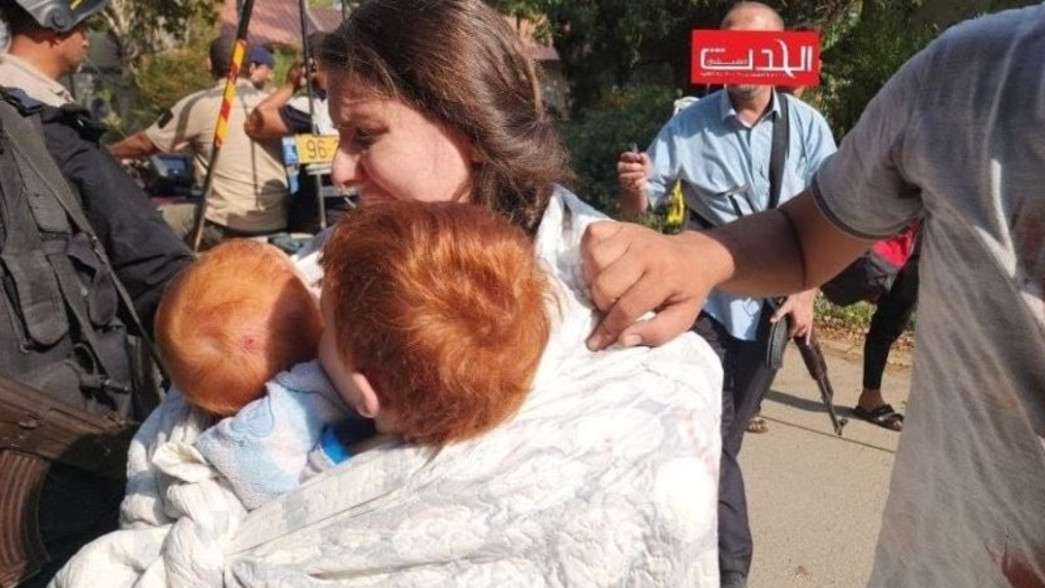Hamas Stunned Israel; What Comes Next?
In the wake of the recent escalation in the Israel-Palestine conflict, a critical evaluation of the situation becomes imperative. All parties involved must prioritize diplomacy, dialogue, and a commitment to finding a peaceful resolution. The cost of continued violence is too high, and the region cannot afford to return to a cycle of conflict and suffering. The international community’s influence is crucial in encouraging de-escalation, humanitarian aid, and a renewed commitment to lasting peace.
Unraveling Historical Parallels: Yom Kippur War and Recent Events of Hamas
The surprise attack on Israel by Egypt and Syria in 1973 during the Yom Kippur War serves as a haunting historical backdrop to the current crisis. The recent attack by Palestinian militants on another Jewish holiday was equally unexpected. Tensions in the Gaza Strip had been simmering, but conventional wisdom held that neither Hamas, the governing Islamist group in Gaza, nor Israel desired a full-blown escalation. However, the events that unfolded on that fateful day challenged these assumptions.
Sophisticated Planning and Unforeseen Consequences
Hamas, it seems, had been meticulously planning a sophisticated, coordinated operation that caught Israel off guard. Rockets rained down on Israeli cities, including Jerusalem and Tel Aviv, while Palestinian fighters infiltrated southern Israel via land, sea, and air. They laid siege to Israeli towns and army posts, causing casualties and taking Israeli civilians and soldiers hostage in Gaza. The entire world witnessed this dreadful drama unfold in real time through social and mainstream media.
Hostages and Human Shields: A Dangerous Dimension
The capture of Israeli soldiers and civilians by Palestinian militants adds a dangerous dimension to the conflict. These hostages are not only valuable bargaining chips but could also be used as human shields, further complicating an already dire situation. The Israeli Defense Forces has initiated operations to regain control of the area, including airstrikes on Gaza. As Rear Adm Daniel Hagari, the IDF spokesperson, emphasized, we will do a very sharp and thorough review.https://thebalochistanupdates.com/israel-at-war-sabbath-shock/
Human Toll and International Condemnation
The human toll of this conflict is already staggering, with over 700 Israelis killed and more than 2,200 severely injured. Over 130 individuals remain hostage, their fates uncertain. It is imperative, amidst the claims and counterclaims, to condemn the brutal invasion by Hamas fighters who attacked inside Israeli boundaries. The violation of innocent unarmed civilians and the expression of anger and wrath through such means is unequivocally condemnable.
Repercussions and Threats to Regional Stability
Indeed, a comprehensive review is warranted. Israel’s intelligence and security establishment will need to examine how they did not anticipate this action and why they could not prevent its grave consequences. The repercussions of this escalation are far-reaching and demand a careful and critical examination.
The perceived nexus between Hezbollah and Hamas presents a real threat to the Abraham Accords, a historic agreement brokered with the mediation of Mike Pompeo during the Trump administration. The Accords, which led to diplomatic recognition and normalization between Israel and several Arab nations, were hailed as a positive step toward peace. However, the recent events threaten to undermine the progress made under these agreements.
The Urgent Need for De-escalation and Future Uncertainties
The recent escalation of violence in the Israel-Palestine conflict, triggered by a major assault launched by Palestinian militants, has left the world deeply concerned. This stark turn of events, coming on the heels of the 50th anniversary of the Yom Kippur War, highlights the fragility of the region’s peace and the urgent need for a critical evaluation of the situation.
As tensions escalate, a critical question arises: Will Palestinians in the occupied West Bank, East Jerusalem, or elsewhere in the region heed the call for a broader uprising? Israel is undoubtedly concerned about the potential for a multi-front war, which could draw in the powerful Lebanese militant group, Hezbollah. In response, Israel has ordered a massive reinforcement of its troops and hinted at a possible ground operation in Gaza.
In conclusion, the recent events have stunned Israel, prompting the need for a nuanced and strategic approach to navigate the complexities of the Israel-Palestine conflict. The international community’s role in encouraging de-escalation and fostering diplomatic solutions is more crucial than ever. As the region grapples with uncertainties, the world watches closely, hoping for a path toward lasting peace.


